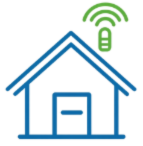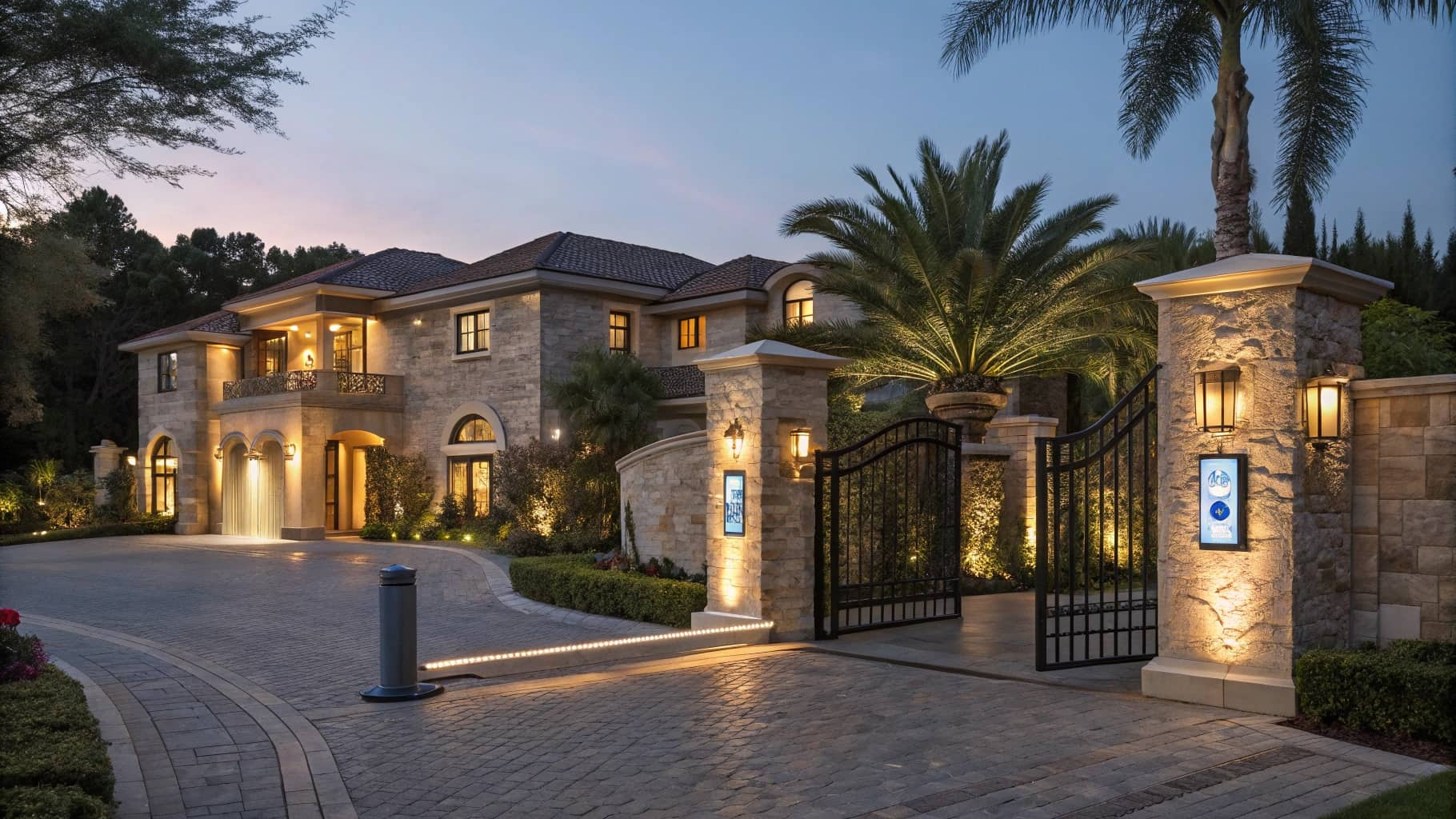Gated communities have become a prominent feature in the landscape of modern residential living, particularly in urban and suburban areas. These enclaves are characterized by their controlled access points, which often include gates, walls, or fences that delineate the community from the outside world. The concept of gated living is not new; it has historical roots that can be traced back to ancient civilizations where fortified areas provided safety and exclusivity.
In contemporary society, however, the appeal of gated communities extends beyond mere security. They are often marketed as havens of tranquility, offering a lifestyle that combines luxury with a sense of belonging. The allure of gated communities is multifaceted.
For many, the promise of enhanced security is a primary motivator for choosing to reside in such environments. However, the appeal also lies in the lifestyle they offer, which often includes a range of amenities and services designed to cater to residents’ needs. As urban areas become increasingly crowded and chaotic, the desire for a peaceful retreat has led to a surge in the popularity of these exclusive neighborhoods.
This article will explore various aspects of gated communities, including their security measures, privacy features, amenities, property values, community benefits, management practices, and considerations for potential residents.
Security Measures in Gated Communities
Physical Barriers: The First Line of Defense>
The presence of gates is often the first line of defense, serving as a deterrent to unauthorized access. Many gated communities feature manned security checkpoints where guards monitor incoming and outgoing traffic, ensuring that only residents and their guests are allowed entry. This level of vigilance can provide peace of mind for families concerned about crime rates in surrounding areas.
Advanced Security Technologies
In addition to physical barriers, many gated communities invest in advanced security technologies. Surveillance cameras are commonly installed throughout the premises, providing real-time monitoring and recording capabilities. These systems can be integrated with smart home technology, allowing residents to access live feeds from their smartphones or other devices.
A Robust Security Framework
Furthermore, some communities utilize automated entry systems that require residents to use key cards or codes to gain access, further enhancing security protocols. The combination of human oversight and technological advancements creates a robust security framework that appeals to those seeking a safe living environment.
Privacy and Exclusivity in Gated Communities

Privacy is another compelling reason why individuals choose to live in gated communities. The controlled access inherent in these neighborhoods fosters an environment where residents can enjoy their homes without the intrusion of outsiders. This sense of seclusion is particularly appealing to high-profile individuals or families who value their privacy due to personal or professional reasons.
The physical barriers that define these communities not only serve as security measures but also create a psychological buffer from the outside world. Exclusivity is often a hallmark of gated communities, with many offering a limited number of homes or lots available for purchase. This exclusivity can enhance the desirability of the community, as potential buyers may perceive it as a status symbol.
The social dynamics within these neighborhoods can also contribute to a sense of belonging among residents. Many gated communities host events and activities that encourage interaction among neighbors, fostering relationships that might not develop in more traditional residential settings. This blend of privacy and exclusivity creates an environment where residents can feel both secure and connected.
Amenities and Services in Gated Communities
Gated communities frequently offer an array of amenities and services designed to enhance the quality of life for their residents. These can range from recreational facilities such as swimming pools, fitness centers, and tennis courts to communal spaces like clubhouses and parks. The availability of such amenities can significantly influence a buyer’s decision when considering a home in a gated community.
For instance, families with children may prioritize access to playgrounds and sports facilities, while retirees might seek out communities with walking trails and social clubs. In addition to recreational amenities, many gated communities provide essential services that contribute to a convenient lifestyle. Landscaping and maintenance services are often included in homeowners’ association (HOA) fees, ensuring that common areas are well-kept and aesthetically pleasing.
Some communities even offer concierge services that assist residents with various tasks, from arranging transportation to organizing events. This level of service can create a sense of luxury and ease that is highly attractive to potential buyers.
Property Value and Investment in Gated Communities
Investing in property within a gated community can be seen as both a lifestyle choice and a financial decision. Historically, homes in gated communities have demonstrated resilience in property value compared to those in non-gated neighborhoods. The combination of enhanced security, privacy, and desirable amenities often leads to higher demand for these properties, which can translate into increased resale values over time.
Buyers may view homes in gated communities as more than just residences; they are often seen as investments that can appreciate significantly. Moreover, the exclusivity associated with gated communities can create a sense of scarcity that further drives property values upward. As more individuals seek out these types of living environments, competition for available homes can lead to bidding wars, pushing prices higher than comparable properties outside these enclaves.
Additionally, many gated communities have strict architectural guidelines and regulations enforced by HOAs, which helps maintain property values by ensuring that homes are well-maintained and aesthetically consistent.
Community and Social Benefits of Gated Communities
Building Relationships through Social Events
Many gated communities organize social events like holiday celebrations, barbecues, or fitness classes, encouraging residents to come together and build relationships
This sense of camaraderie can be particularly beneficial for families with children or individuals seeking social connections. Furthermore, the demographic makeup of gated communities can contribute to a unique social environment.
A Shared Background for Deeper Connections
Many such neighborhoods attract like-minded individuals who share similar values or lifestyles, whether they are young professionals, retirees, or families with children. This shared background can facilitate deeper connections among residents and create an atmosphere where individuals feel understood and supported.
Lasting Friendships and Networks
The social fabric woven within these communities often leads to lasting friendships and networks that extend beyond mere neighborly interactions.
Maintenance and Management of Gated Communities
The management and maintenance of gated communities are critical components that contribute to their overall appeal. Homeowners’ associations (HOAs) typically oversee the operations within these neighborhoods, ensuring that common areas are well-maintained and that community rules are enforced. This management structure allows for organized decision-making regarding community improvements, maintenance schedules, and financial planning for future projects.
Regular maintenance is essential for preserving the aesthetic appeal and functionality of gated communities. Landscaping services are often employed to maintain lush gardens and green spaces, while routine inspections ensure that amenities such as pools and fitness centers remain in good condition. Additionally, HOAs may implement rules regarding property upkeep to ensure that all homes meet certain standards.
This level of oversight not only enhances the overall appearance of the community but also protects property values by preventing neglect or deterioration.
Considerations for Living in a Gated Community
While there are numerous benefits associated with living in a gated community, potential residents should also consider several factors before making a decision. One significant consideration is the cost associated with living in these neighborhoods. Homeowners’ association fees can vary widely depending on the amenities offered and the level of service provided.
Prospective buyers should carefully evaluate these costs against their budget to ensure they align with their financial goals. Another important factor is the degree of autonomy residents have within gated communities. While many appreciate the rules and regulations set forth by HOAs as a means of maintaining order and aesthetics, some individuals may find these restrictions limiting.
Potential residents should familiarize themselves with the community’s bylaws and regulations before committing to ensure they are comfortable with the lifestyle expectations set forth by the HOA. In conclusion, gated communities offer a unique blend of security, privacy, amenities, and social opportunities that appeal to many individuals seeking an enhanced living experience. However, it is essential for prospective residents to weigh both the advantages and considerations associated with this lifestyle choice carefully.
By doing so, they can make informed decisions that align with their personal preferences and financial objectives.
FAQs
What is a gated community?
A gated community is a residential area that is enclosed by walls, fences, or gates, and typically has controlled access for residents and their guests.
How do gated communities protect luxury estates?
Gated communities protect luxury estates by providing a secure and private environment for residents. The controlled access limits the entry of unauthorized individuals, reducing the risk of theft, vandalism, and other security concerns.
What are the common security features in gated communities?
Common security features in gated communities include security guards, surveillance cameras, access control systems, and perimeter fencing. These measures help to monitor and control who enters and exits the community, enhancing the overall security of luxury estates.
Do gated communities increase property value?
Research has shown that gated communities can increase property value due to the perceived exclusivity, privacy, and security they offer. The controlled access and enhanced security measures can make luxury estates in gated communities more desirable to potential buyers.
Are there any drawbacks to living in a gated community?
Some potential drawbacks of living in a gated community include higher homeowners’ association fees, restrictions on guest access, and limited interaction with the surrounding community. Additionally, the sense of exclusivity and privacy may not appeal to everyone.

